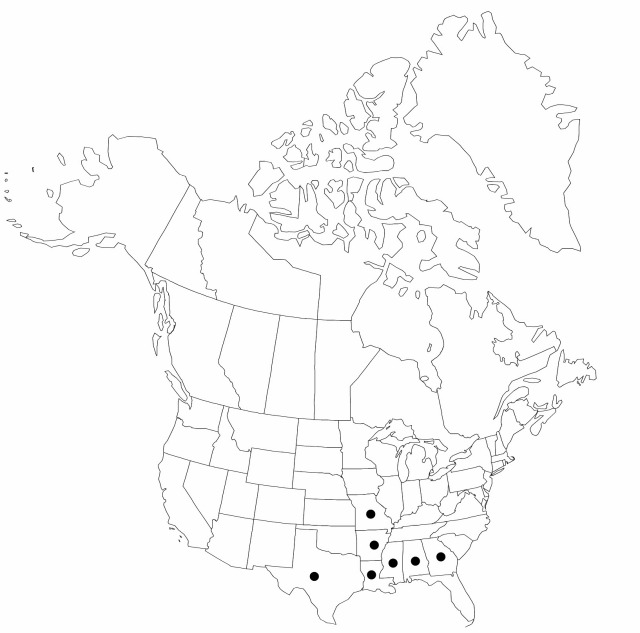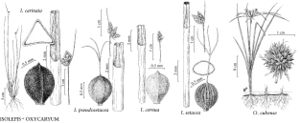Isolepis pseudosetacea
Cat. Pl. Espagne, 331. 1917.
Plants annual; rhizomes absent. Culms 2–20 cm × 0.2–0.3 mm. Leaves: sheaths green to stramineous; distal blade mostly much longer than sheath, to 3 cm × 0.2 mm. Inflorescences: involucral-bract 1, 3–10 (–25) mm, rarely a second bract to 5 mm. Spikelets 2–8 × 1–1.5 mm; scales colorless, stramineous, or pale greenish, markedly gibbous, veinless or obscurely 3–7-veined, midrib keeled, finely reticulate at 40X, membranous, hyaline, apex rounded, mucronate, or awned; proximal scale to 1.5 (–5) mm, awn to 3 mm; other scales 1–1.2 mm, apex, mucro 0.1 mm. Flowers: anthers 0.2 mm; styles 3-fid. Achenes often falling with and clasped by floral scales, whitish (or orangebrown when unripe), broadly ellipsoid to obovoid or outline subcircular, nearly equilaterally trigonous, faces convex, 0.7–0.9 × 0.5–0.6 mm, minutely papillose at 40X, papillae in many vertical rows or usually obscured by thick whitish surface layer.
Phenology: Fruiting spring–summer.
Habitat: Wet, freshwater, often drying, places in grasslands, open woods, limestone barrens, cultivated fields, waste places
Elevation: 0(–100) m
Distribution

Ala., Ark., Ga., La., Miss., Mo., Tex., s Europe, n Africa
Discussion
Isolepis pseudosetacea is often mistaken for the very similar I. carinata, with which it sometimes grows but does not intergrade. It may easily be distinguished by the characters given in the key.
Selected References
None.
Lower Taxa
"shortened" is not a number.
